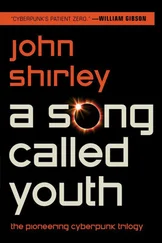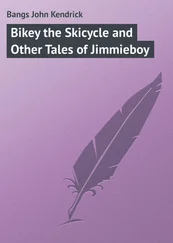“Where’s he getting all these new inventions?”
“Oh, he’s been recruiting people for years. Who do you think designed those new dynamos of his?”
“Well, it’s his call,” Sullivan said, looking wistfully into his empty glass. Weak brandy or not, a drink was a drink. “You’ve been working for him twice as long as I have. He don’t tell me much.”
“He likes information to be compartmentalized on this project. Keeps a secret better.”
Sullivan crossed to the porthole and peered out. Saw his shadow, out there, still clamping that pipe in his mouth. But now the G-man was pacing by the Olympian, looking the freighter up and down. “Son of a bitch’s still out there. Doesn’t seem empowered to do anything but ogle the ship.”
“I’ve got to meet the Wales brothers. You know what they’re like. Artists. All too aware of their own genius…” He frowned at the blueprints. Sullivan could see he was jealous of the Waleses. Greavy sniffed. “If there’s nothing else—I’d better get on with it. Unless there’s something else besides this new man that Ryan’s taken on?”
“Who? Oh, McDonagh? No, I’m here to confirm the time you ship out. Ryan wanted me to come down personally. He’s beginning to think they might be listening in on the telephones somehow. I’m thinking if you can leave earlier than midnight, it’d be better.”
“As soon as the captain’s back. I expect him within the hour.”
“Leave soon as you can. Maybe they’ll get a warrant after all. I don’t think they’d find anything illegal. But if Ryan wants to keep them from knowing what he’s up to, the less they see, the better.”
“Very well. But who could imagine what he’s up to? Jules Verne? Certainly not these drones at the IRS. But Sullivan, I assure you—Ryan is correct: if they knew what he really has in mind, they’d be quite worried. Particularly considering how little help he gave the Allies in the war.”
“He took no sides at all. He didn’t care for Hitler or the Japs neither.”
“Still—he showed no special loyalty to the United States. And who can blame him? Look at the wreckage the ant society made of Europe—for the second time in the century. And the horror of Hiroshima and Nagasaki… I can’t wait to leave all that behind…” Greavy escorted Sullivan toward the door. “Ryan has every intention of creating something that will grow—and grow! First across the seabed, and then, in time, above the surface of the sea—when they’ve done such damage to themselves, these so-called nations of the earth, that they can no longer pose a threat. Until then, he is right to mistrust them. Because he is creating something that will compete with them. A whole new society. Indeed, in time a whole new world! One which will utterly replace the vile, squirming anthill humanity has become…”
“Merton? Get outta my bar.”
Merton was gaping at Frank Gorland from behind the beer-stained desk of The Clanger’s smoky little office. Harv Merton was a man with a large round head and thick lips, a skinny body, and a brown turtleneck sweater. Hell, he looked like a damn turtle—but a turtle in a bowler hat. “Whatta hell ya mean, your bar?” he asked, tamping a cigarette out in a butt-filled ashtray.
“I’m the owner, ain’t I? As of tonight anyhow.”
“Whatta hell ya mean you’re the owner, Gorland?”
The man who called himself Frank Gorland smiled without humor and leaned against the frame of the closed door. “You know any expressions besides whatta hell ? You’re about to sign this bar over to me, is whatta hell.” Gorland ran a hand over his bald head. Prickly, needed to shave it. He took the papers from his coat, all legal down to the last period, and dropped them on Merton’s desk. “That look familiar? You signed it.”
Merton stared at the papers, eyes widening. “That was you? Hudson Loans? Nobody told me that was—”
“A loan is a loan. What I seem to recall is, you were drunk when you signed it. Needed some money to pay off your gambling vig. A big fucking vig it was too, Merton!”
“You were there that night? I don’t remember—”
“You remember getting the money, don’t you?”
“It—it don’t count if I was drunk!”
“Merton, if there was no business done drunk in this town, half its business wouldn’t get done.”
“I think you put something in my drink, that’s what I think; the next day I felt—”
“Stop whining; you cashed the check, didn’t you? You got the loan, couldn’t pay the interest, time’s up—now this place is mine! It’s all there in black and white! This dump was your collateral!”
“Look, Mr. Gorland…” Merton licked his thick lips. “Don’t think I disrespect you. I know you’ve hustled—uh, worked your way to a good thing, this end of town. But you can’t just take a man’s bidness …”
“No? My attorneys can. They’ll come after you hammer and tongs, pal.” He grinned. “Hammer, Tongs, and Klein, attorneys at law!”
Merton seemed to shrivel in his seat. “Okay, okay, whatta ya want from me?”
“Not what I want—what I’m taking. I told you, I want the bar. I own a bookkeeping operation. I own a drugstore. But—I don’t have a bar! And I like The Clanger. Lots of dirt on the fights, what with the boxin’ setup and all. Might be useful… Now you call that fat-ass bartender of yours in here, tell him he’s gotta new boss…”
* * *
Gorland. Barris. Wiston. Moskowitz. Wang. Just some of the names he’d had the last few years. His own name, quite another Frank, seemed like it belonged to somebody else.
Keep ’em guessing, that was his way.
The Clanger wasn’t just a cash cow—it was the place for Frank Gorland to hear the right conversations. It was just a short walk from the docks—but it was not just a nautical bar. There was a big boxing bell on the wall behind the bar; when they tapped a new keg, the bell was loudly clanged and the beer lovers came running, sometimes from down the street. Best German-style brew in New York City. The walls of the dusty, cavelike bar were decorated with worn-out boxing gloves, frayed ropes from rings, black-and-white photos of old-time boxers going back to John L. Sullivan. He had a bartender, an old Irish lush named Mulrooney, working down at the other end. But Gorland liked to work the bar so he could hear the talk. Good for his bookmaking action, and you never know how it might fit the next grift. When you serve a beer—cock an ear.
The talk at the crowded bar tonight was full of how Joe Louis, the Brown Bomber, back from the war with a pocketful of nothing and a big tax debt, was going to defend his world heavyweight title against Billy Conn. And how the retired Jack Johnson, first Negro to win the heavyweight champ title, had died two days before in a car accident. None of which was what Gorland needed to know. But there were a couple of guys here who’d have the skinny on the up-and-comer Neil Steele versus the fading boxing-circuit bum Charlie Wriggles.
Gorland had heard a rumor that Steele might be throwing the fight, and he had a theory about how that information might pay off—way past the usual payoff. Only, Gorland needed more assurance that Steele was taking the fall…
Gorland hated bartending because it was actual physical work. A great grifter should never have to do real work. But he wiped down the bar, made small talk; he served a beer, and cocked an ear.
The jukebox was finishing a rollicking Duke Ellington number, and in the brief interval before it switched over to an Ernie “Bubbles” Whitman big-band cut, Gorland zeroed in on the conversation of the two wise guys in the white ties and pinstripes whispering over their Sambocas. He wiped at an imaginary spill on the bar, edging closer. “But can we count on Steele?” said the one some called Twitchy. He twitched his pencil-thin mustache. “Thinks he’s going to challenge the Bomber next year…”
Читать дальше












